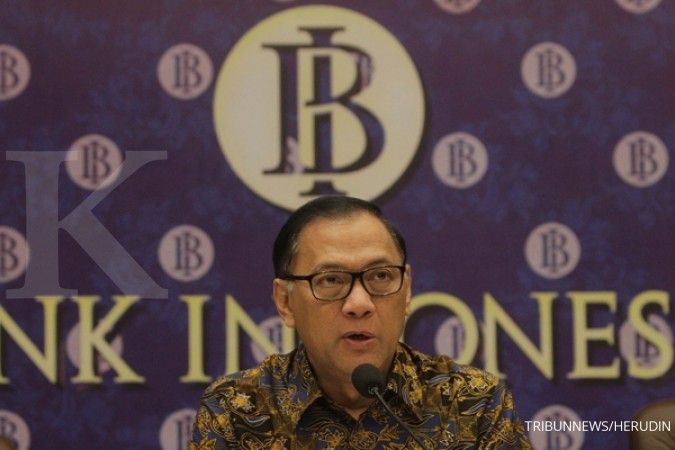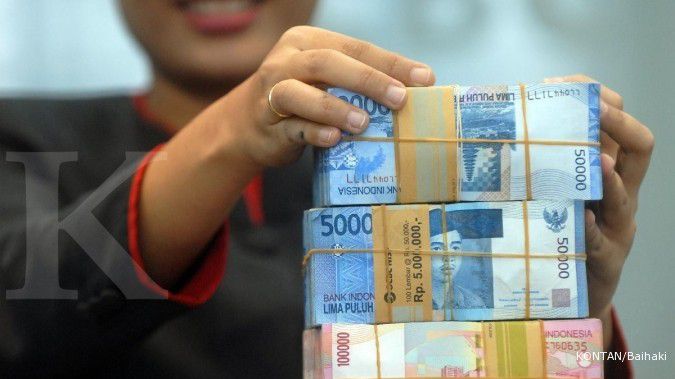JAKARTA. Bank Indonesia (BI) has said it will beef up measures to stabilize the rupiah, signaling vigilance on the currency, the region’s worst-performing.
“[BI] will continue to strengthen measures to keep the rupiah stable, including intervening in the foreign exchange market and buying government bonds in the secondary market,” the central bank said in a statement released on Tuesday after a board of governors’ meeting decided to keep the benchmark interest rate steady at 7.5 percent.
The announcement signals a shift in perspective for the central bank, which last month argued that a drop in the rupiah could be tolerated and might boost exports.
BI Governor Agus Martowardojo stated that a weak rupiah might be inevitable, while senior deputy governor Mirza Adityaswara argued that the economy might need an undervalued currency to narrow the current-account deficit, a major worry among foreign investors.
BI’s preference for a weaker currency was also shown by its aggressive dollar purchase in the market. In February, the ratio of BI’s dollar absorption against foreign portfolio flows rose to 3:3 from 2:3 a month earlier, according to data compiled by economists from Nomura Holdings Inc.
The rupiah, along with other emerging-market currencies, has been under selling pressure because of increased demand for US dollars amid better conditions in the world’s largest economy, with US central bank the Federal Reserve expected to raise interest rates mid-year.
BI’s latest policy statement appeared to be an “expression of concern” over the rupiah, with the central bank seemingly worried that the currency’s fluctuation could descend into chaos, noted Tim Condon, an economist with ING Group.
“I expect increased foreign exchange market smoothing operations,” Condon said in an emailed reply to questions on Tuesday. “After a period of time with stable forex market conditions, falling inflation will make it possible for BI to cut again.”
The market responded positively to the central bank’s decision, with the rupiah strengthening during afternoon trading. The currency, which has lost 6 percent this year to become Asia’s worst performer, advanced 0.6 percent to close at 13,165 per dollar on Tuesday, according to local currency rates compiled by Bloomberg.
BI’s six-man board of governors decided on Tuesday to keep the benchmark interest rate at 7.5 percent, judging that the rate level was already in line with efforts to manage inflation and the current-account deficit.
Su Sian Lim, an economist with HSBC Bank, said that the maintaining of the BI rate, in addition to the central bank’s cautious and hawkish signals, was an encouraging sign, as the market had been worried about a possible “policy misstep” after last month’s surprise rate cut.
Critics decried mixed signals after last month’s 25-basis-point rate cut seemed to contradict BI officials’ tight-bias statements.
“By not cutting the rate any further today, Bank Indonesia has opted to play it safe — a wise move given the big unknown ahead of us all,” said Wellian Wiranto, an economist with OCBC Bank in Singapore.
“While rupiah stability must have been a key consideration, other factors, including the uptick in rice price, probably played a part in the decision,” he added.
While rice shortages have driven up prices in some areas, inflation has in fact declined for two consecutive months to hit 6.3 percent in February. BI has predicted that annual inflation may fall below 4 percent.
The central bank expects the current-account deficit to stand at 3 percent of gross domestic product (GDP) this year, increasing slightly from 2.9 percent last year. The deficit is the broadest measure of a country’s international trade.
In its policy statement, BI expressed optimism over Indonesia’s economy, predicting growth in the January-March period this year to inch higher than the previous quarter’s figure of 5 percent, which was the slowest in five years.
BI optimism comes despite the slowdown in lending growth, which was 11.5 percent at the end of January, compared with 11.6 percent the previous month. (Satria Sambijantoro)
/2011/12/26/1164244671p.jpg)












